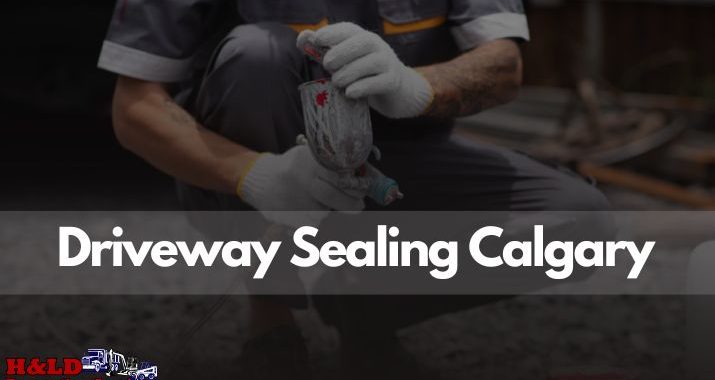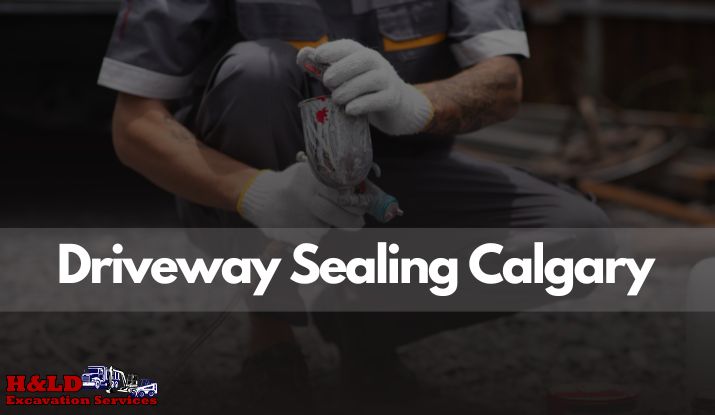Driveway sealing is essential for protecting your driveway from weather-related wear and tear, but many people don’t realize how much the weather itself can impact the sealing process. Each weather factor, temperature, humidity, rain, and wind, directly affects how well driveway sealant adheres, cures, and lasts. Knowing how to time driveway sealing for the right weather can make all the difference in achieving a strong, long-lasting seal.
How Temperature Affects Driveway Sealing
Temperature is one of the most important factors to consider for driveway sealing Calgary. The ideal temperature range for sealing a driveway is between 50°F and 90°F, which allows the sealant to cure properly. When temperatures drop below 50°F, the sealant may not bond effectively with the driveway surface, leading to a weaker, shorter-lasting seal. Conversely, temperatures above 90°F can cause the sealer to dry too quickly, leading to an uneven finish and reducing durability. Planning your driveway sealing during mild seasons, like early spring or fall, typically offers the best results.
The Role of Humidity in Driveway Sealing
Humidity, or the level of moisture in the air, plays a crucial role in how driveway sealant adheres to the surface. High humidity can extend the drying time, leaving the sealer sticky and vulnerable to imperfections. Very low humidity, however, can cause the surface layer to dry faster than the lower layers, resulting in a less durable seal. The ideal humidity level for driveway sealing is between 40% and 60%. Keeping track of local humidity forecasts helps ensure that the sealer bonds smoothly and evenly, creating a solid protective layer for the driveway.
Why Rain Should Be Avoided During Driveway Sealing
Rain can seriously disrupt the driveway sealing Calgary process. Moisture, whether from rain or dew, interferes with the bonding of the sealant, leading to a weak and uneven surface. Even light rain can compromise the drying process, which is why sealing a driveway requires at least 24 to 48 hours of dry weather to allow the sealer to cure fully. Checking the weather forecast for dry conditions is essential to avoid re-sealing or reapplying, ensuring that the sealant bonds well without any moisture-related issues.
How Wind Impacts Driveway Sealing Quality
Although often overlooked, wind can also affect driveway sealing results. High winds can cause rapid drying on the surface of the sealant, which leaves the lower layers soft and under-cured. This uneven drying increases the likelihood of cracking over time. Wind can also blow dirt, leaves, and other debris onto the freshly sealed driveway, potentially marring the finish. Light, steady air circulation is acceptable, but avoiding windy days will help prevent debris buildup and improve the durability of the sealant.
Best Seasons for Sealing a Driveway
Choosing the right season for driveway sealing is essential. Each season presents unique weather conditions that impact the sealing process. Summer is typically warm enough, but high temperatures can dry the sealant too quickly, potentially leading to an uneven seal. Early spring and fall offer milder temperatures, providing the best conditions for sealing a driveway. Winter sealing should be avoided due to low temperatures and the likelihood of snow or ice, which prevent proper curing.
Planning Ahead with Weather Forecasts
For successful driveway sealing, checking the extended weather forecast is key. Choose a window with several days of mild temperatures, low humidity, and no rain. Planning around favorable weather conditions allows the driveway sealer to adhere properly, dry evenly, and last longer. Driveway sealing during ideal weather conditions ultimately saves time, money, and effort, while providing a stronger, more resilient surface.
Final Thoughts – Driveway Sealing
Weather conditions play a major role in driveway sealing success. Factors like temperature, humidity, rain, and wind directly impact how well the sealer bonds, cures, and protects the driveway. For a professional-grade seal, property owners should plan their sealing project around optimal weather conditions. With careful timing and attention to weather forecasts, you can achieve a durable, smooth, and long-lasting driveway seal that enhances both appearance and protection.





